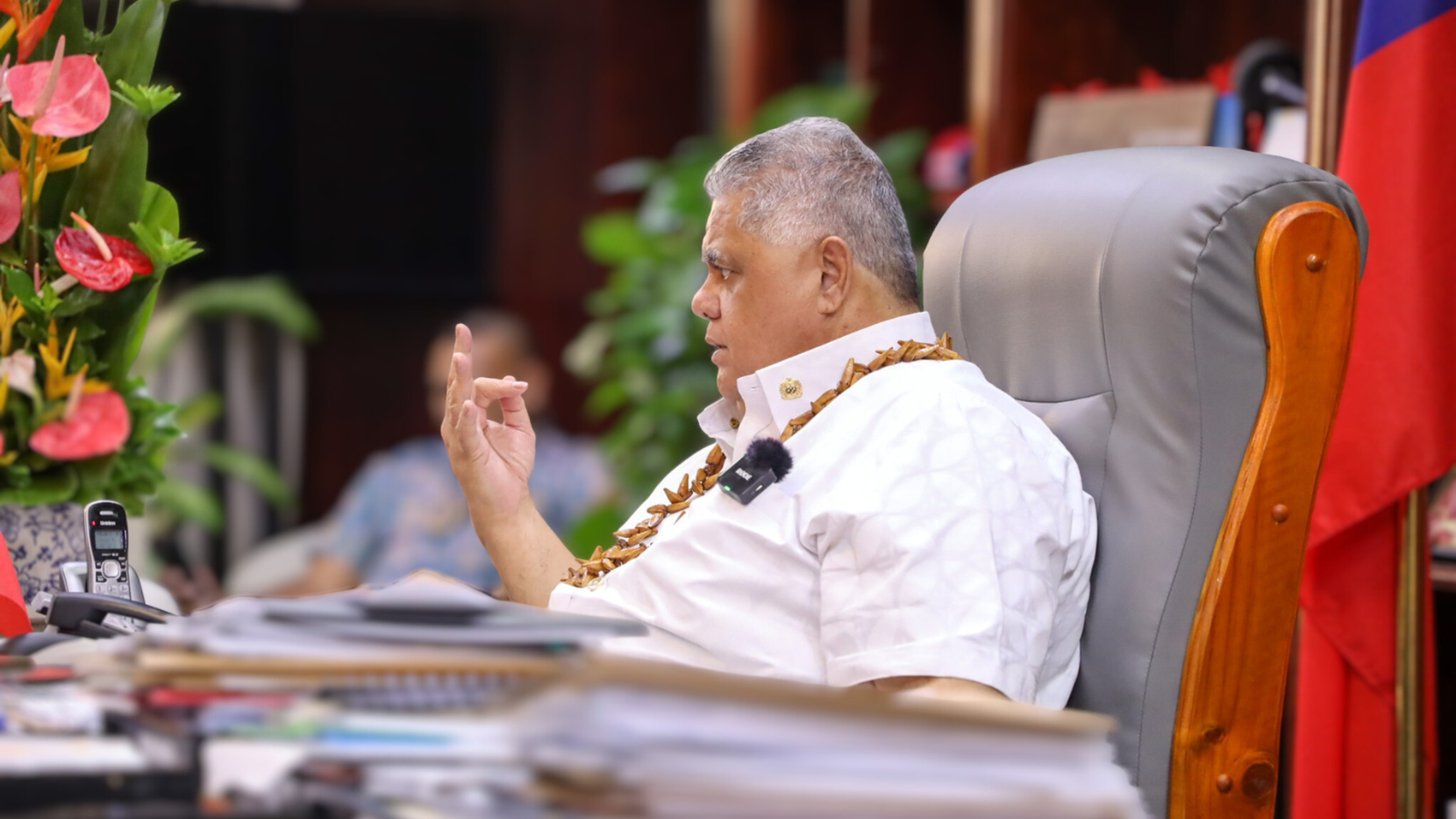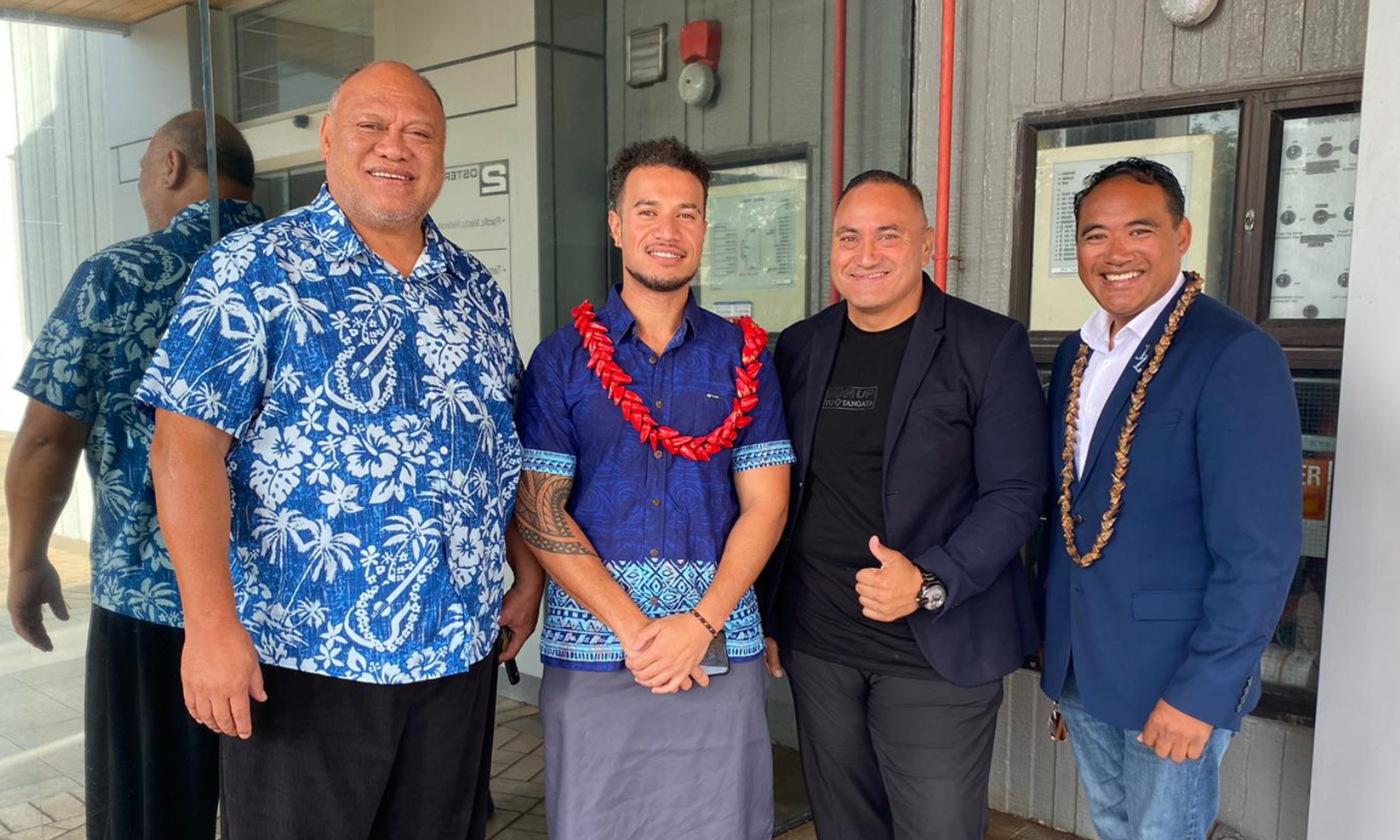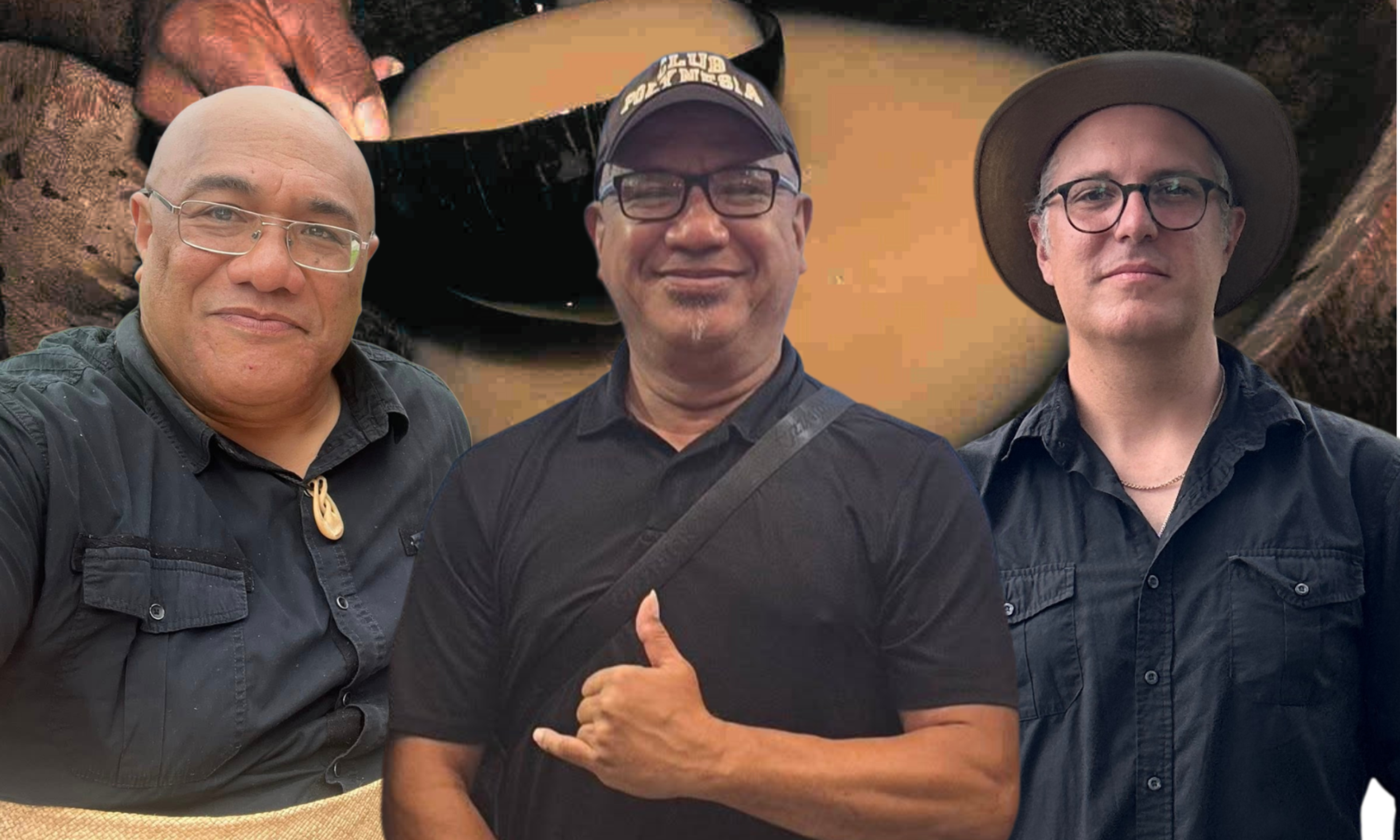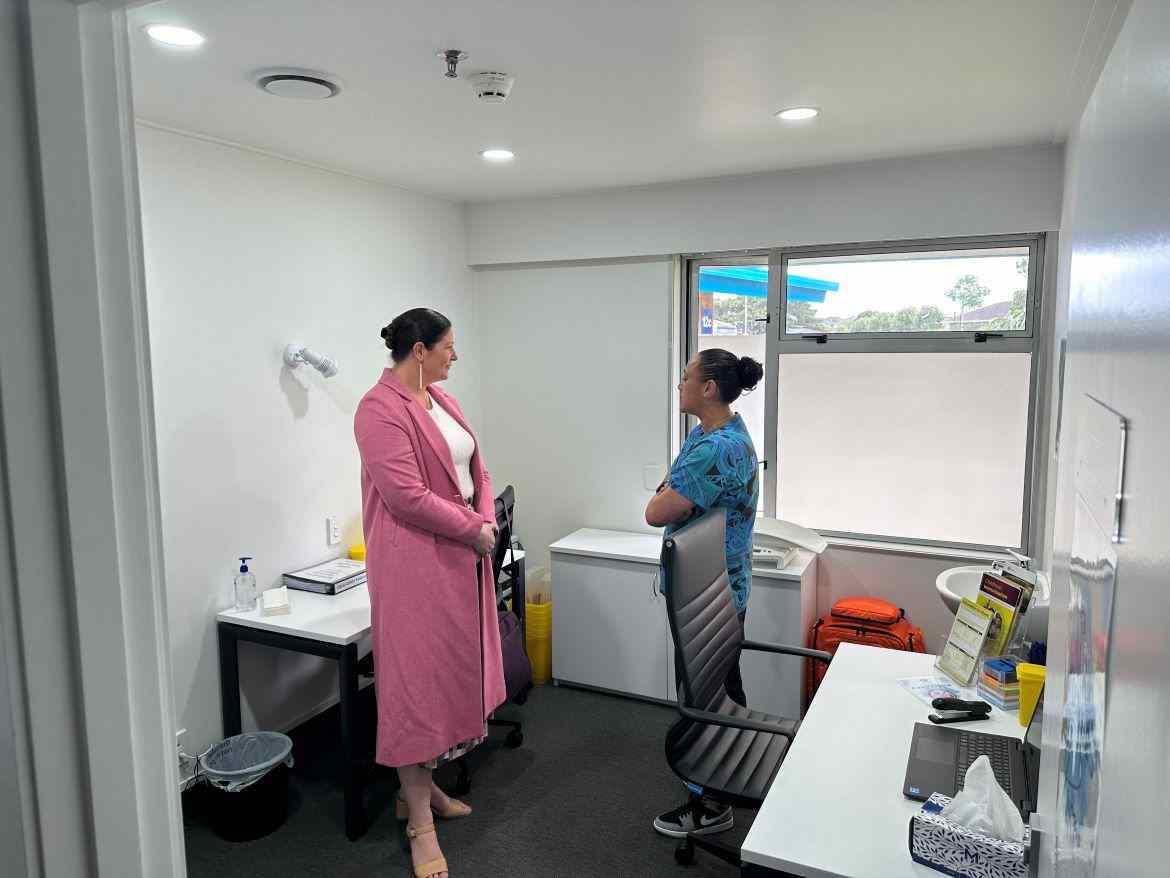

Midwife Ellen Worley and Christina Cawlins and her son at Nga Hau Māngere Birthing Centre.
Photo/PMN News/ Justin Latif
By the numbers: Will a boost in maternity funding count for Māngere’s mums?
The government announced a boost to maternity services for Māori and Pacific providers, however questions remain why a popular birthing centre in South Auckland receives no public funding.


Sāmoa Prime Minister’s conspiracy case ruling postponed again

Papatoetoe election rerun highlights low voter turnout

Pacific leaders back NZ kava reforms but warn of risks for smaller businesses in Tonga

The VC that never was: Bringing the heroic truth of Haane Manahi to the big screen

Sāmoa Prime Minister’s conspiracy case ruling postponed again

Papatoetoe election rerun highlights low voter turnout

Pacific leaders back NZ kava reforms but warn of risks for smaller businesses in Tonga
Four kilometres.
That is roughly the distance from Christina Cawlins’ Māngere central home to the Nga Hau Māngere Birthing Centre where she was due to give birth on the same weekend as Cyclone Gabrielle hit Auckland.
As torrential rain pelted the city, Cawlins’ pre-birth nerves were somewhat sated knowing they would only have a short distance to travel to get to the centre.
“I was panicking a bit, because I was seeing people being carried out in bath tubs from the nearby street, I’m thinking, if this happens tonight, how are we getting there, but my partner reassured me, ‘we’ve got a truck, we’ll be fine’.”
6.5km: Māngere, postcode 2022 to Middlemore Hospital, 2025
That’s how far Cawlins travelled for the births for her first two children, which she had at Middlemore Hospital. She says, given the frenzied nature of what has been described as the busiest hospital in Australasia, she hopes she never has to return there.
“I’d never go back to Middlemore - I don’t want to bag the staff because it’s there when people need it,” she says.
“But when I had my first child there - I was high risk as I had preeclampsia so I was induced but I had no idea what was going on as people were always rushing in and out.”
At one point another mother was considered a higher priority, so all the staff, including her midwife had to leave Cawlins and her husband, just as the final stages of her labour was about to begin.
“I was just stuck in a room - and there was no one around - just as I was about to start pushing,” she says.
“My second one wasn’t as traumatic as the first - but once we had the baby - the message that came through was, ‘oh you’ve had this baby, now you need to go’.”
18km: Māngere, 2022 to Botany Downs Birthing Unit, 2013
21km: Māngere, 2022 to Papakura Birthing Unit, 2210
42km: Māngere, 2022 to Pukekohe Birthing Unit, 2120
Those are the distances Cawlins would have had to travel South Auckland’s three other primary birthing unit, which would take between 30 to 90 minutes depending on traffic..
But thankfully for Cawlins and hundreds of mothers from Māngere and its surrounding areas, the Nga Hau Māngere Birthing Centre opened in 2019.
However, this isn’t just about convenience. When announcing the Government’s new health reforms, Andrew Little said these changes would see an end to “postcode lottery”, meaning families would no longer be disadvantaged by a quirk of which district health board they happened to live in.
As Cawlins’ current midwife Ellen Worley says, having a baby in a primary care setting like a birthing unit, dramatically increases the odds of a healthier birth and a better postnatal experience for both mother and baby, removing the chances or lottery of the child’s crucial first 2000 days being negatively impacted.
"It's about whanau having choice. Wherever possible, and where it's wanted by whanau, a primary unit is a safe place for most women to have babies, supported by decades of evidence. It's a much more economical option for the Government, and better breastfeeding and vaginal [birth] rates are also some of the advantages, which is well supported by research."
900 births in four years
There’s now been over 900 births at the centre in Māngere, making it consistently one of the busiest units in South Auckland and it’s also helped lift the rate of Pacific women using a primary unit from 5 per cent to 50 per cent.
Worley says the birthing centre has filled a vital gap in maternity services in a high need area like South Auckland.
“Nga Hau Māngere Birthing was the pineapple pie dream in the sky for three decades and then in the last four and half years that has come to pass,” she says
“It’s such an incredible space, it’s a thriving hub of multiple services for lactation, contraception, antenatal clinics, postnatal care, where Pacific midwives and Maori midwives are meeting and collaborating and we just hope it can continue.”

Associate Minister of Health Willow-Jean Prime speaking with a Turuki Healthcare staff member in Māngere. Photo/ PMN News/Justin Latif
10 metres
This is the distance between Nga Hau Māngere Birthing Centre and the venue where Associate Health Minister Willow-Jean Prime announced an injection of $74 million into wraparound maternity services, to be invested in a range of Māori and Pacific providers.
“We know that a child’s first 2,000 days lay the foundation for their entire future,” Willow-Jean Prime said via a press release announcing the funding injection.
“That’s why, through the exciting Kahu Taurima programme for maternity and early years, this Government is investing so every child gets the strongest start to life. We want all families raising precious babies to feel supported.”
Turuki Healthcare is one such provider and hosted Prime for the announcement. Its chief executive Te Peau Winiata says they intentionally chose their new service to be a building next to Māngere's birthing centre due to its strategic position within the suburb.
“We expect to see the building here, the birthing centre, plus other services in the area to come together to be a kind of locality-based nought to five years services hub.
“And in our mind, we see the relationship with the midwives next door and the Wright Family Foundation [who currently fund Nga Hau Māngere Birthing] as important partners.”
$0.00
This is currently the amount of money that Nga Hau Māngere receives to keep its doors open.
But this could change.
Te Whatu Ora Regional Wayfinder for Commissioning Danny Wu says discussions are ongoing with the current funders of the birthing centre, The Wright Family Foundation.
“I’ve been in conversations with both the Wright Family Foundation, Te Puea and the Pacific midwives, around what does a Kahu Taurima service look like in Māngere and where does Nga Hau fit into that.
“We’re certainly interested in keeping primary birthing going in Māngere - but we just need to come to a resolution with the owners of the building.”
Wright Family Foundation co-founder Chloe Wright declined to comment on the future of Nga Hau Māngere, but referred Pacific Media Network to her previous comments on the centre and why she built it without the assurance of government funding.
“There is such an incredible need in South Auckland and the women there do not get the care they have a right to expect. [Building it] was a bold move and perhaps rather a naive move, but not one I regret because it has made a massive difference to the lives of those women who have been able to stay at Nga Hau."
While Prime wouldn’t be drawn on whether her ministry would commit to funding the birthing centre, she did reiterate that the government was already “supporting three primary birthing units here in South Auckland and we do have access to a secondary unit [referring to Middlemore Hospital]”.
This will be little comfort for many mothers in the region, who may have hoped that the “postcode lottery” that blighted Auckland’s healthcare prior to the health reforms would come to an end.
However as Worley says, who supports a number of mothers to birth at the centre, the longer uncertainty drags on for Nga Hau’s future, the more stress it creates for expectant mums in the area.
“I have mothers who are due in December, January, February but there’s no certainty for them and that’s really scary.
“It’s great we’ve had this $74 million investment announced - but there’s been no bottom line or promises - [about funding for the birthing centre]
“So I guess what I'm really hopeful for is that this beautiful building can be the hub of maternity services for years to come.
“But we need a promise.”